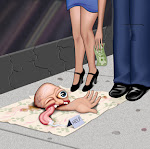
Few writers have inspired such fanatical devotion as has German scholar and phrenologist, Friedrich Wilhelm Nietzsche. But who was Nietzsche? The brilliant academic conversant in epistemology? Or the sagacious skull-measurer who built an empire trading exotic monkey pelts? A survey of the scrawl he left behind provides clues to the identity of the mysterious litterateur.
1872 – 6
A youthful and exuberant Nietzsche burst onto the European intellectual landscape with the publication of his dissertation “Tragedy, Destruction, and other Virtues.” Its style—simple, direct, and insipid, was designed to antagonize an indifferent public. Here is the origin of philosophy as we know it, with its fundamental assertion that “semen has no conscience other than an occasional guilt trip disguised as logical schematism.” (Tragedy, 214) It was only the beginning.
While the western world mulled over the peculiar decrees in his dissertation, Nietzsche quietly completed “Meditations I’ve tried that fail.” Universally applauded as an authentic search for spirituality, its introspective passages revealed a more vulnerable side to the German:
Beautiful woman appears and dances
Sandalwood incense held high,
Clap hands and chant songs with fear.
Latex is clear in mind’s eye,
Tall dancing woman appear (repeat)
1877-9
Increasingly more involved in his work, Nietzsche refused to leave his au-pair suite except for occasional visits to his elderly mother, a break-dancing bearded woman with a traveling circus. It was during one such visit that he hit upon the origin of moral prejudice. A collection of aphorisms outlining his theory, “War—a Problem We Must Violently Destroy,” was released in 1879:
“Convictions are more dangerous enemies of truth than are lies. And if one tells a lie, it becomes truth when there is truth in the lie. But when the lie, proceeding from the truth, purports to be a truth instead of a lie that arose from the truth, never was a lie so truly spoken.” (War, 483)
“I distrust all children, and avoid them.” (War, 509)
1883-8
Nietzsche slid into a prolonged depression and, against the advice of his Rabbi, released “Zarathustra, Smartest Man in the Whole Damn World.” Zarathustra introduced the phrase “God is paralyzed,” and gave rise to the concept of the “Suppurate Man.” Nietzsche argued that God did in fact exist, but was unable to intervene in the affairs of man because he had fallen, and was immobilized by an injury to his spinal column. The Suppurate Man affirms life, including the suffering and pain that accompany human existence. Moreover, the Suppurate Man discharges puss as proof of his existence and his faith that God is simply injured and will one day return on large crutches made of clouds.
1886 - 1888
Nietzsche surprised critics and expanded the scope of his work, releasing “Blonde Muscle—an historical account of Scandinavian Bodybuilders.” It was a financial disaster and led Nietzsche to shift his focus to devils and chimera. Illustrative of this peculiar turn are two passages from “Satan, Misunderstood Angel of Goodness.”
“Pay for that which I desire? I say rather steal it, then there will be more money at day’s end.” (Satan, 212)
“There are many who proclaim that to kill a man, eat his withering flesh, spit on his sodden grave, then ride horseback sipping champagne from his boot is unkind, even sinful. To those I say, you have not walked in those shoes.” (Satan, 666)
1889
As another decade drew to a close, Nietzsche began work on an autobiography. “Homo Erectus” unveiled the philosopher’s secret world, relaying personal anecdotes, childhood secrets, and family recipes:
“As a child, I derived a great degree of pleasure spanking my cats. One in particular, ‘Ruples,’ seemed rather to enjoy it. After I spanked him, he would roll on his back and gesticulate wildly. To this day, I do not know why he enjoyed that. But he did, and I loved him.” (Homo, 226)
“Trixie was the name of my first girlfriend. One day in class, she asked me if I liked her. I said I would if she would give me some change. She agreed, and I used the money to buy candy. I don’t know where she is today.” (Homo 304)
“The night my father died, he asked me if I might one day become a priest. I told him nothing would bring me greater pleasure. He began to sneeze uncontrollably, then keeled over dead with a most horrific expression on his face.” (Homo, 304)
1890
Greeted with the shocking news he had contracted hoof and mouth disease, Nietzsche isolated himself from family and friends and refused to communicate in any medium other than Morse code. Ever stoic, Nietzsche continued to write and, nine months later, completed “Why I Write Books Naked.” Naked featured amateurish sketches of policemen, squirrels, and badgers, and psalms to an unnamed pear goddess. When his publisher, uncertain of the market potential of a play performed solely by mimes making their way through an elaborate cotton maze filled with cobras, asked Nietzsche for an explanation, Nietzsche purportedly replied, “Inside the serpent, the hammer biscuit.” The play was never performed.
1891
Oblivious to his own increasing dementia, Nietzsche continued writing and, in 1891, completed, “A Will to Cheese and other Products that One Day will Mold.” In Mold, Nietzsche laid the groundwork for his theory that all humans desire to one day become cheese. This was “a necessary step in an evolution towards hyper-dimensional moldiness. A state of excremental, malodorous existence that transcends all known boundaries of space and time.” (Mold, 214) Nietzsche insisted the book only be sold by women with seven toes, severely limiting distribution. Only 15 copies were sold; seven were later returned.
1894
Local police received a series of complaints from Nietzsche’s neighbors and his legal problems culminated in an arrest for running naked down a major thoroughfare wielding a severed, flaming monkey’s paw. Two weeks later, he completed “Whiskers, my Invisible Mermaid Doll.” In response, Nietzsche was unceremoniously fired by his publisher and institutionalized by family members. One year later, he died a pauper.
1872 – 6
A youthful and exuberant Nietzsche burst onto the European intellectual landscape with the publication of his dissertation “Tragedy, Destruction, and other Virtues.” Its style—simple, direct, and insipid, was designed to antagonize an indifferent public. Here is the origin of philosophy as we know it, with its fundamental assertion that “semen has no conscience other than an occasional guilt trip disguised as logical schematism.” (Tragedy, 214) It was only the beginning.
While the western world mulled over the peculiar decrees in his dissertation, Nietzsche quietly completed “Meditations I’ve tried that fail.” Universally applauded as an authentic search for spirituality, its introspective passages revealed a more vulnerable side to the German:
Beautiful woman appears and dances
Sandalwood incense held high,
Clap hands and chant songs with fear.
Latex is clear in mind’s eye,
Tall dancing woman appear (repeat)
1877-9
Increasingly more involved in his work, Nietzsche refused to leave his au-pair suite except for occasional visits to his elderly mother, a break-dancing bearded woman with a traveling circus. It was during one such visit that he hit upon the origin of moral prejudice. A collection of aphorisms outlining his theory, “War—a Problem We Must Violently Destroy,” was released in 1879:
“Convictions are more dangerous enemies of truth than are lies. And if one tells a lie, it becomes truth when there is truth in the lie. But when the lie, proceeding from the truth, purports to be a truth instead of a lie that arose from the truth, never was a lie so truly spoken.” (War, 483)
“I distrust all children, and avoid them.” (War, 509)
1883-8
Nietzsche slid into a prolonged depression and, against the advice of his Rabbi, released “Zarathustra, Smartest Man in the Whole Damn World.” Zarathustra introduced the phrase “God is paralyzed,” and gave rise to the concept of the “Suppurate Man.” Nietzsche argued that God did in fact exist, but was unable to intervene in the affairs of man because he had fallen, and was immobilized by an injury to his spinal column. The Suppurate Man affirms life, including the suffering and pain that accompany human existence. Moreover, the Suppurate Man discharges puss as proof of his existence and his faith that God is simply injured and will one day return on large crutches made of clouds.
1886 - 1888
Nietzsche surprised critics and expanded the scope of his work, releasing “Blonde Muscle—an historical account of Scandinavian Bodybuilders.” It was a financial disaster and led Nietzsche to shift his focus to devils and chimera. Illustrative of this peculiar turn are two passages from “Satan, Misunderstood Angel of Goodness.”
“Pay for that which I desire? I say rather steal it, then there will be more money at day’s end.” (Satan, 212)
“There are many who proclaim that to kill a man, eat his withering flesh, spit on his sodden grave, then ride horseback sipping champagne from his boot is unkind, even sinful. To those I say, you have not walked in those shoes.” (Satan, 666)
1889
As another decade drew to a close, Nietzsche began work on an autobiography. “Homo Erectus” unveiled the philosopher’s secret world, relaying personal anecdotes, childhood secrets, and family recipes:
“As a child, I derived a great degree of pleasure spanking my cats. One in particular, ‘Ruples,’ seemed rather to enjoy it. After I spanked him, he would roll on his back and gesticulate wildly. To this day, I do not know why he enjoyed that. But he did, and I loved him.” (Homo, 226)
“Trixie was the name of my first girlfriend. One day in class, she asked me if I liked her. I said I would if she would give me some change. She agreed, and I used the money to buy candy. I don’t know where she is today.” (Homo 304)
“The night my father died, he asked me if I might one day become a priest. I told him nothing would bring me greater pleasure. He began to sneeze uncontrollably, then keeled over dead with a most horrific expression on his face.” (Homo, 304)
1890
Greeted with the shocking news he had contracted hoof and mouth disease, Nietzsche isolated himself from family and friends and refused to communicate in any medium other than Morse code. Ever stoic, Nietzsche continued to write and, nine months later, completed “Why I Write Books Naked.” Naked featured amateurish sketches of policemen, squirrels, and badgers, and psalms to an unnamed pear goddess. When his publisher, uncertain of the market potential of a play performed solely by mimes making their way through an elaborate cotton maze filled with cobras, asked Nietzsche for an explanation, Nietzsche purportedly replied, “Inside the serpent, the hammer biscuit.” The play was never performed.
1891
Oblivious to his own increasing dementia, Nietzsche continued writing and, in 1891, completed, “A Will to Cheese and other Products that One Day will Mold.” In Mold, Nietzsche laid the groundwork for his theory that all humans desire to one day become cheese. This was “a necessary step in an evolution towards hyper-dimensional moldiness. A state of excremental, malodorous existence that transcends all known boundaries of space and time.” (Mold, 214) Nietzsche insisted the book only be sold by women with seven toes, severely limiting distribution. Only 15 copies were sold; seven were later returned.
1894
Local police received a series of complaints from Nietzsche’s neighbors and his legal problems culminated in an arrest for running naked down a major thoroughfare wielding a severed, flaming monkey’s paw. Two weeks later, he completed “Whiskers, my Invisible Mermaid Doll.” In response, Nietzsche was unceremoniously fired by his publisher and institutionalized by family members. One year later, he died a pauper.
~Goldmind (condensed reprint from Goldmind's Stanford Chaparral article from awhile ago)





























